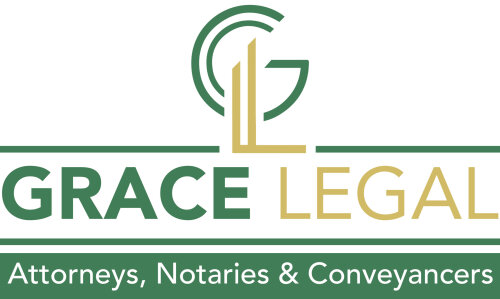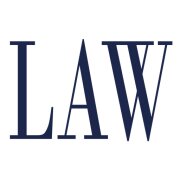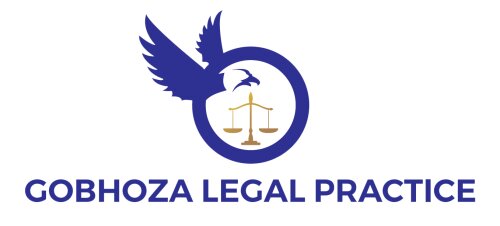Best Banking & Finance Lawyers in Gaborone
Share your needs with us, get contacted by law firms.
Free. Takes 2 min.
List of the best lawyers in Gaborone, Botswana
About Banking & Finance Law in Gaborone, Botswana
Banking & Finance laws in Gaborone, Botswana, serve to regulate the interactions between banks, financial institutions, and their customers as well as maintain the stability of the financial system. These laws cover a range of activities including lending, borrowing, bank transactions, compliance with international financial standards, and consumer protection. Gaborone, being the capital city and economic hub of Botswana, hosts a variety of financial institutions, making it essential to understand the legal landscape if you are involved in banking & finance activities.
Why You May Need a Lawyer
Several scenarios may necessitate the assistance of a Banking & Finance lawyer in Gaborone:
- Loan and Credit Issues: Whether you are a business seeking a loan or an individual dealing with credit issues, legal advice can help you understand your rights and obligations.
- Regulatory Compliance: Financial institutions must adhere to strict regulatory standards. Legal expertise is crucial for ensuring compliance with local and international laws.
- Contract Disputes: Disputes over financial agreements such as loan terms or investment contracts may require legal intervention.
- Bankruptcy and Insolvency: Legal assistance can guide you through complex insolvency procedures, protecting your assets and interests.
- Fraud and Mismanagement: Legal help is often necessary in cases of financial fraud or mismanagement, whether you are a victim or accused.
- Investment Advice: Lawyers can provide valuable guidance on investments, ensuring that they comply with local laws and regulations.
Local Laws Overview
Banking & Finance laws in Gaborone are governed by a blend of local statutes and regulations, influenced by international best practices. Key legal frameworks include:
- Bank of Botswana Act: This Act establishes the Bank of Botswana, which is primarily responsible for monetary policy, financial stability, and the regulation of financial institutions.
- Banking Act: Governs the establishment, operation, and supervision of financial institutions in Botswana.
- Financial Intelligence Act: Focuses on preventing money laundering and financing of terrorism, mandating due diligence and reporting requirements.
- Companies Act: Pertains to the incorporation and regulation of companies, including financial institutions.
- Consumer Protection Regulations: Protect the rights of consumers in financial transactions, ensuring fairness and transparency.
Frequently Asked Questions
1. Do I need a lawyer to take a loan from a bank?
While it's not a legal requirement, consulting a lawyer can help you understand the terms and conditions of the loan and ensure that your interests are protected.
2. What should I do if I suspect financial fraud?
Immediately contact a lawyer who specializes in banking & finance law to assess your situation and guide you through the process of reporting and recovering any losses.
3. How can a lawyer help with regulatory compliance?
A lawyer can help ensure that your financial operations adhere to local and international laws, minimizing the risk of penalties and legal issues.
4. What are the key financial regulatory bodies in Botswana?
The primary regulatory bodies include the Bank of Botswana and the Financial Intelligence Agency, which oversee financial institutions and enforce compliance with financial laws.
5. Can I handle a contract dispute without a lawyer?
While you can attempt to resolve disputes on your own, having a lawyer can offer expert advice and improve the chances of a favorable outcome.
6. What legal steps are involved in insolvency proceedings?
Insolvency proceedings can be complex, involving asset assessment, creditor negotiations, and court filings. A lawyer can guide you through each step, ensuring compliance with legal requirements.
7. Are there laws protecting consumers in financial transactions?
Yes, Botswana has consumer protection regulations that ensure fairness and transparency in financial transactions.
8. How can a lawyer assist with investments?
A lawyer can review investment opportunities for compliance with local laws, help draft contracts, and provide advice to mitigate risks.
9. What is the role of the Bank of Botswana?
The Bank of Botswana oversees monetary policy, ensures financial stability, and regulates financial institutions within the country.
10. Can legal advice help in negotiating better loan terms?
Absolutely. A lawyer can help you understand the terms and negotiate more favorable conditions, ensuring that your rights and interests are protected.
Additional Resources
For further assistance, consider reaching out to the following entities:
- Bank of Botswana: The central bank responsible for monetary policy and regulation of financial institutions.
- Financial Intelligence Agency: Tasked with preventing money laundering and combating the financing of terrorism.
- Botswana Law Society: Provides information and resources on legal professionals in Botswana.
- Ministry of Finance: Responsible for fiscal policy and financial regulations.
Next Steps
If you need legal assistance in Banking & Finance, consider the following steps:
- Identify your specific legal issue and gather relevant documents.
- Research and select a qualified lawyer who specializes in banking & finance law.
- Schedule a consultation to discuss your situation and seek advice.
- Work with your lawyer to develop a strategy and take the necessary legal actions.
- Follow your lawyer’s guidance to navigate the legal processes effectively.
Lawzana helps you find the best lawyers and law firms in Gaborone through a curated and pre-screened list of qualified legal professionals. Our platform offers rankings and detailed profiles of attorneys and law firms, allowing you to compare based on practice areas, including Banking & Finance, experience, and client feedback.
Each profile includes a description of the firm's areas of practice, client reviews, team members and partners, year of establishment, spoken languages, office locations, contact information, social media presence, and any published articles or resources. Most firms on our platform speak English and are experienced in both local and international legal matters.
Get a quote from top-rated law firms in Gaborone, Botswana — quickly, securely, and without unnecessary hassle.
Disclaimer:
The information provided on this page is for general informational purposes only and does not constitute legal advice. While we strive to ensure the accuracy and relevance of the content, legal information may change over time, and interpretations of the law can vary. You should always consult with a qualified legal professional for advice specific to your situation.
We disclaim all liability for actions taken or not taken based on the content of this page. If you believe any information is incorrect or outdated, please contact us, and we will review and update it where appropriate.
Browse banking & finance law firms by service in Gaborone, Botswana
Gaborone, Botswana Attorneys in related practice areas.















